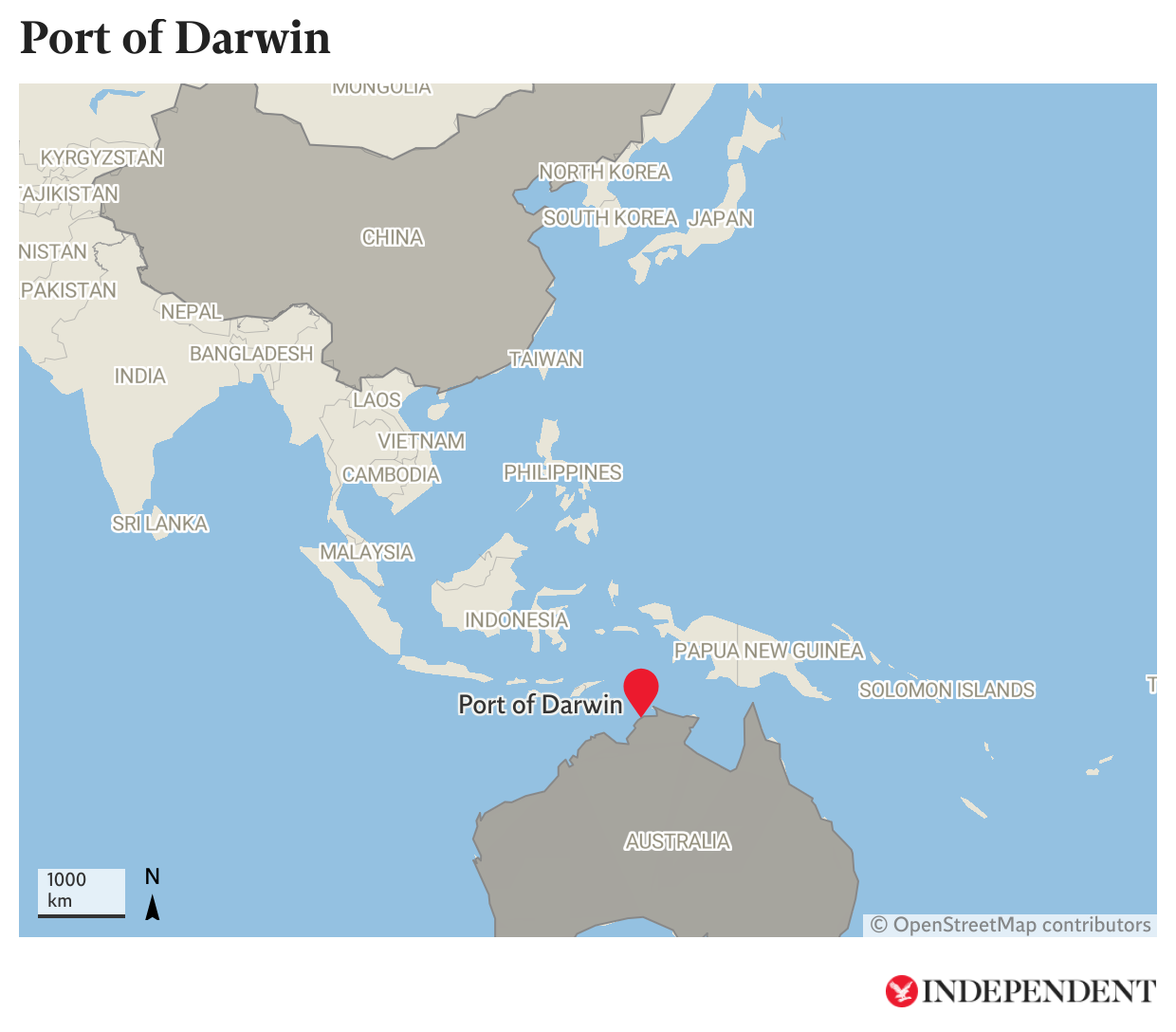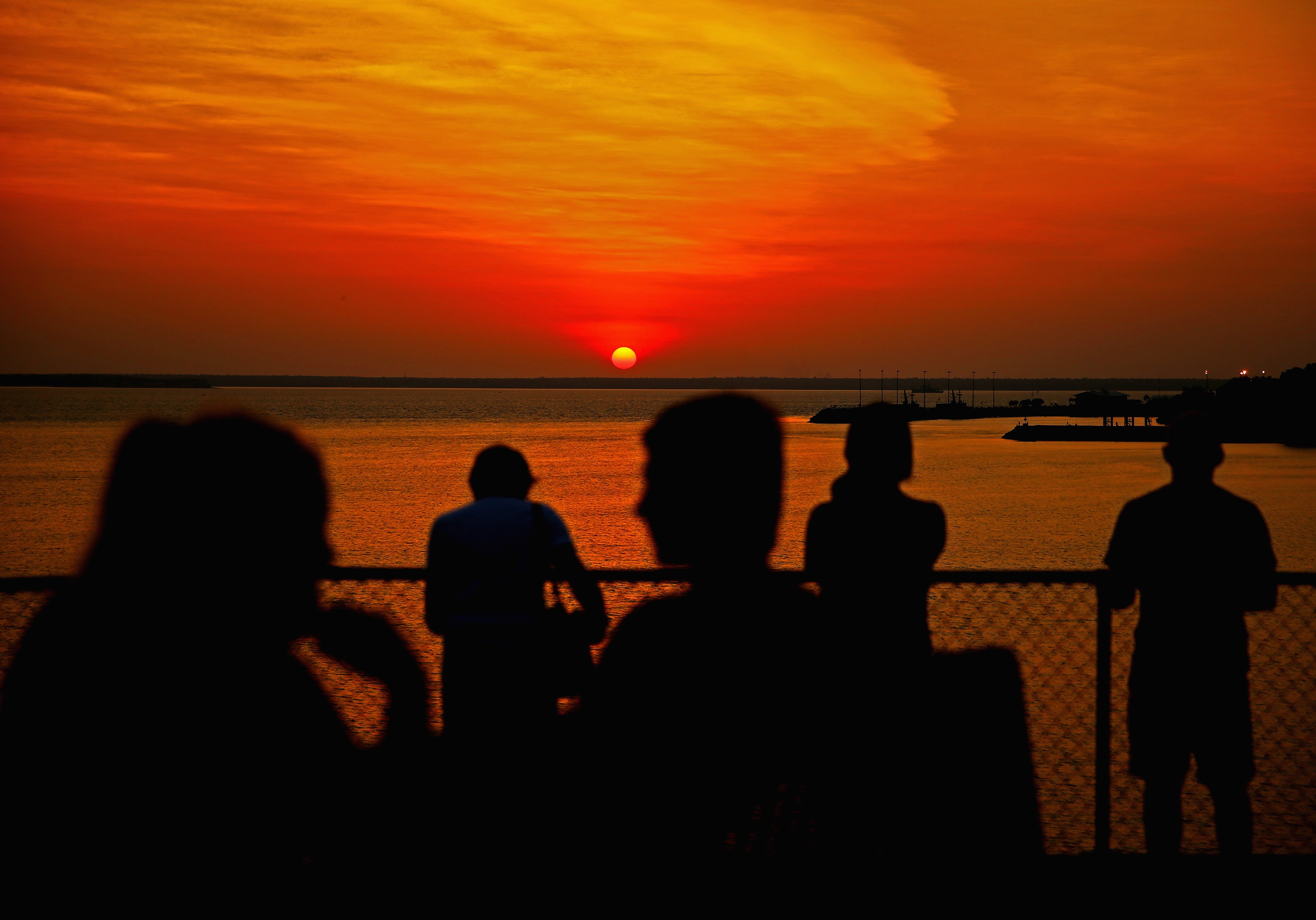The Australian port at the centre of a tug-of-war between Beijing and Canberra
Tussle over strategic Darwin port deepens as American company linked to Trump shows interest in taking lease from Chinese firm
China and Australia are sparring for control of an Australian port as concern grows over Beijing's exponentially growing influence in the Indo-Pacific.
China is vehemently opposing Australia’s plan to take back the controversial decades-long lease of the port in the northern city of Darwin.
The row deepened this week after reports suggested that American private equity firm Cerberus had shown interest to acquire the lease.
Both Australia’s ruling Labor party and the Liberal-National Coalition had vowed during the recent election campaign to revoke Landbridge’s lease for the port. Landbridge, a private multinational group of companies with interests in ports and logistics, is headquartered in China.
Last month, prime minister Anthony Albanese declared that the port should be “in Australian hands” and vowed to regain control of the "strategic asset". He even reportedly suggested a willingness to nationalise the port if a new buyer could not be found.
The port of Darwin, located strategically opposite the Darwin defence base, is one of Australia's crucial gateways for trade, connecting the nation to the Asia-Pacific region.
The deepwater port reportedly records a throughput of 4.5 million cargoes and is essential as a supply centre for Australia's oil and gas projects.
The Northern Territory state government sold the port’s 99-year lease to Landbridge for £374m in 2015, a move criticised by then US president Barack Obama. Around 2,000 US marines conduct exercises for six months of the year in Darwin and air bases in the area are being expanded to host American bombers.
The Northern Territory awarded the contract to Landbridge a few years after the US posted the first of a rotating group of marines in Darwin.
Australia has lately been building up its northern military bases after signing a security partnership with the US and the UK.

The Chinese leaseholder has been adamant in refusing to give up control of the port and Beijing has called the American bid to take over as “ethically questionable".
China’s ambassador to Australia, Xiao Qian, has urged Canberra to honour its contract with Landbridge, pointing out that the company has made "significant investments" in the facility.
“Such an enterprise and project deserves encouragement, not punishment,” the ambassador said in a statement on Sunday. “It’s ethically questionable to lease the port when it was unprofitable and then seek to reclaim it once it becomes profitable.”
The port of Darwin has become the latest sticking point in relations between Australia and China which have dramatically improved in the three years since Mr Albanese was first elected in May 2022.
The nations have been at loggerheads over China's exertion of dominance in the waters between them, not least Beijing’s live-fire exercises off Australia’s heavily populated east coast earlier this year.
The Chinese foreign ministry said this week that Landbridge had obtained the lease on the open market and so its legitimate rights and interests should be fully protected.
The Communist Party of China mouthpiece Global Times warned in an editorial that if Australia forcibly took away the lease from Landbridge, it would create “major enduring pitfalls for the country”.
It claimed that Landbridge had invested about £40m in upgrading port facilities, resulting in a 95.7 per cent increase in the total gross tonnage of arriving vessels.

In the meantime, Cerberus Capital Management, founded by billionaire investor Stephen Feinberg who was appointed US deputy secretary of defence in March, is preparing a formal proposal to buy the port, The Australian reported.
Cerberus has even partnered with Australian freight company Toll to ease concerns about foreign ownership of the strategic port, according to The Australian Financial Review.
If the company were to succeed in securing the lease for the port, it would be a major strategic victory for Donald Trump’s administration amid the ongoing trade war with China over high tariffs.
The Albanese government said it was running a separate process to identify potential domestic buyers and investors for the port.
"There have been numerous meetings with potential proponents for the Port of Darwin," federal lawmaker Luke Gosling, the special envoy for defence and Northern Australia, told Reuters. "We'll work through that process methodically.”
The Northern Territory's treasurer, Bill Yan, told the parliament last week that the port must be ready for "heavier defence logistics, the surge in critical mineral exports and the growing LNG cargoes", and operate in "Australian interests".
Australian Strategic Policy Institute director of national security programs, John Coyne, said Landbridge agreeing to sell the lease for profit would be an easier pathway for the Albanese government than if it were compelled to intervene to break the lease on national security grounds, which would draw a backlash from China.
"Beijing would not be happy with a divestment of an asset like this," he said, adding that it could discourage other foreign investment in Australia.
Landbridge insisted that it had no intention of ending its lease. “Landbridge has not yet received any offers or engagement from the government at any level,” non-executive director Terry O’Connor said.
“It is business as usual at Darwin port as we continue to focus on the growth of our operations.”
Darwin is the second major port to get caught in the US-China trade war. China has been trying to block Hong Kong conglomerate CK Hutchison from selling its ports on the Panama Canal to US investment firm BlackRock for £14bn.
The Wall Street Journal, citing people familiar with the matter, reported last month that the MSC shipping company, a part of the BlackRock consortium, had held discussions on moving ahead with the bulk of the deal while disputes over the two ports were resolved.
Tycoon Li Ka Shing announced in March that CK Hutchison would sell its 80 per cent holding in the ports business covering 43 ports in 23 countries.
Join our commenting forum
Join thought-provoking conversations, follow other Independent readers and see their replies
Comments